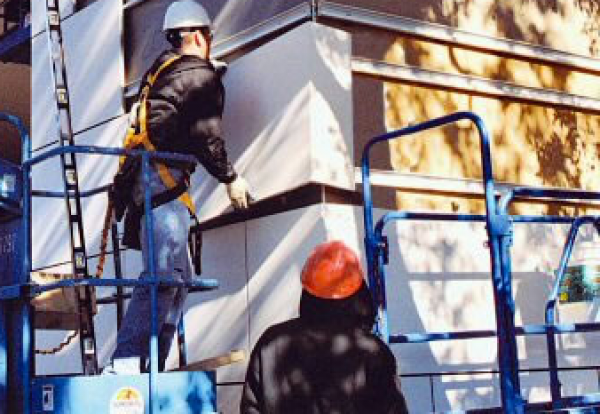Firms have been given until early March to agree fully-funded plans of action including remediating unsafe cladding on mid-rise buildings of 11m-18m in height currently estimated to cost around £4bn to fix.
The Government has also pledged to unveil a package of measures to restore common sense to the industry and stop surveyors declaring buildings unsafe when they were not.
In a big overhaul of building safety, Levelling Up and Housing Secretary Michael Gove warned firms refusing to pay for fixes faced punitive action
This includes restrictions to government funding and bid competitions, the use of planning powers and the pursuit of companies through the courts.
The government will confirm shortly which size firms fall into scope for funding contributions. The rules are expected to cover all firms with annual profits from house building at or above £10m.
Last month the Government ordered the suspension of Rydon Homes, linked to the contractor responsible for the refurbishment of the Grenfell Tower, from the government’s Help to Buy scheme.
Gove also condemned the Mercedes F1 team sponsorship deal with Kingspan, an insulation supplier connected to the crisis.
Gove has today written to industry giving them the deadline, warning that if the industry fails to take responsibility, the government will if necessary impose a solution in law.
In the letter, Gove said that the Government had accepted its share of responsibility and made significant financial provision through its ACM remediation programme and the Building Safety Fund.
He said: “Some developers have already done the right thing and funded remedial works and I commend them for those actions. But too many others have failed to live up to their responsibilities.”
Developers asked to agree to:
- make financial contributions to a dedicated fund to cover the full outstanding cost to remediate unsafe cladding on 11-18m buildings, currently estimated to be £4bn
- fund and undertake all necessary remediation of buildings over 11m (ie both 11-18m and 18m+) that they have played a role in developing
- provide comprehensive information on all buildings over 11 meters which have historic safety defects and which they have played a part in constructing in the last 30 years
Developers must take forward all necessary remediation work at pace – prioritising buildings with greatest risks first and in all cases finding the quickest and most proportionate solution to make buildings safe.
He called on industry to enter an open and transparent dialogue with the government to hear their proposals, starting with a roundtable with the largest residential developers and trade bodies.
The government will invite leaseholders and those affected by the Grenfell Tower tragedy to the table to discuss solutions at appropriate junctures to ensure discussions are not taking place behind closed doors.








 (300 x 250 px).jpg)











































.gif)


